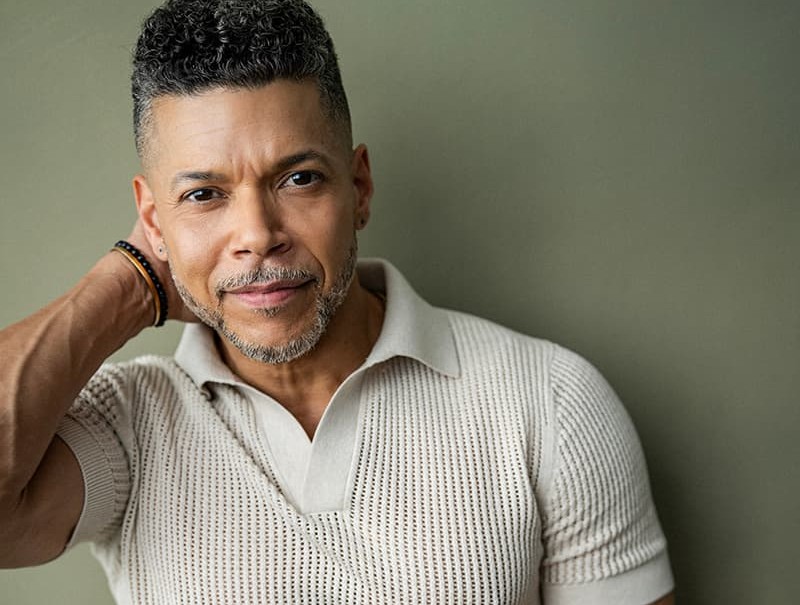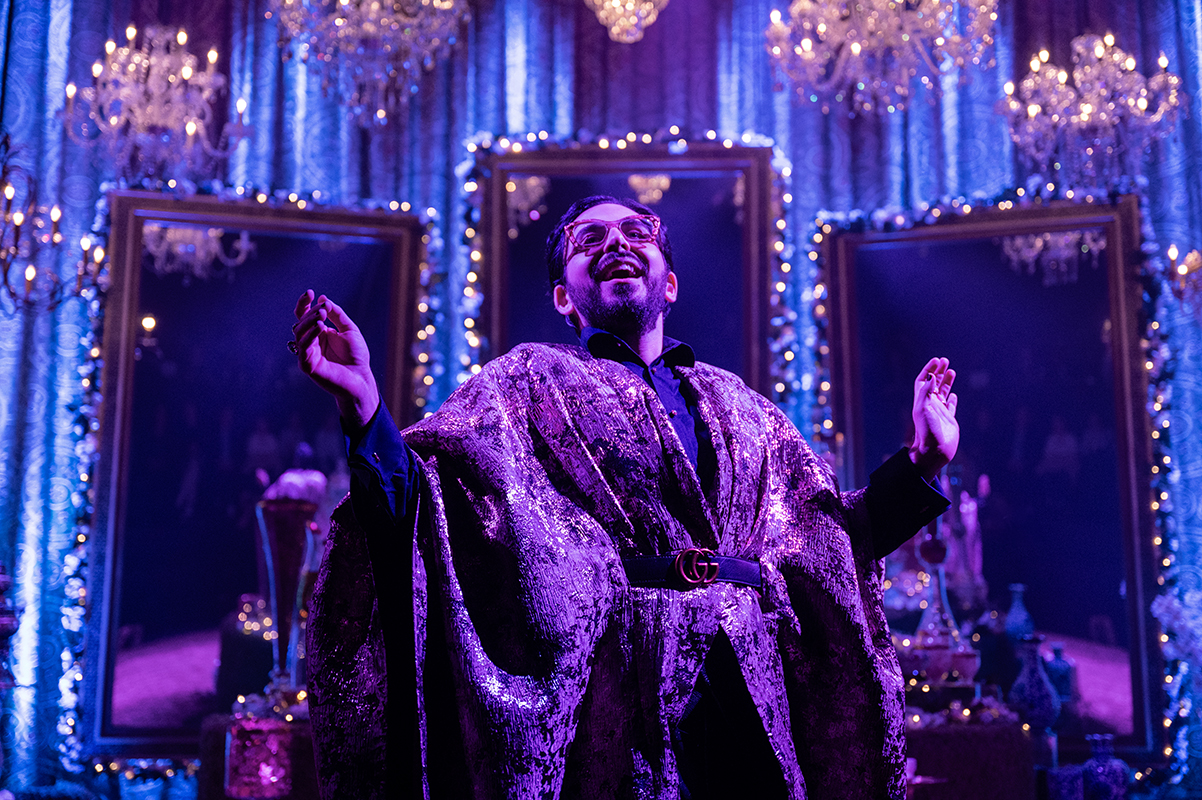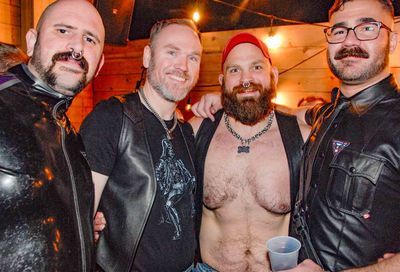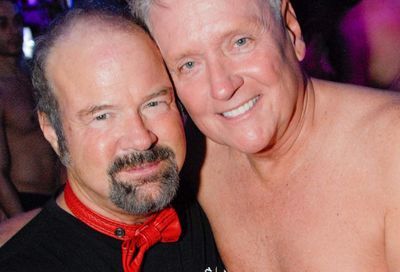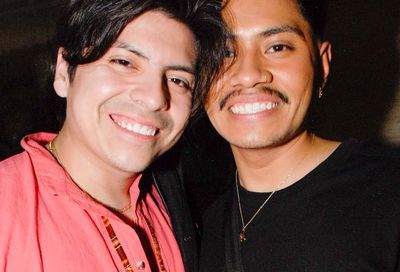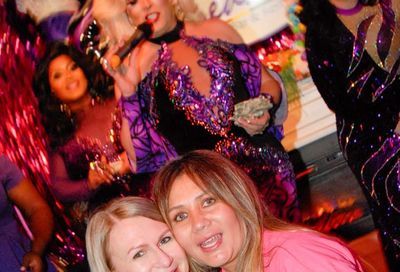Chef de Résistance: An interview with Chef Jeremiah Tower
Thirty years ago, Jeremiah Tower forged the celebrity chef culture that pervades today's society. A new documentary celebrates the life of the playful, irascible perfectionist.

Jeremiah Tower has always considered himself an outlaw.
“It’s hard to imagine, in New York now, if you’re 22, no one gives a shit what you’re doing sexually,” says the man credited for starting the celebrity chef movement. “But when I was growing up, you could be put in jail, for God’s sakes. I knew I was an outlaw, but also because I was an American in Australia and an American in England. I was different. And people told you so all the time.”
Shaped by a tumultuous childhood divided between traveling the world with his absentee parents and military-style boarding schools abroad, Tower quickly learned self-sufficiency and developed a take-charge attitude that carried over into his work life.
“If you’re going to make your own way and make your own point, it’s probably going to cause a little bit of trouble,” says Tower, whose reputation as a brash, opinionated, and unabashed perfectionist has rubbed many in his industry the wrong way.
His workplace personality, fluctuating between moments of charm and abrasiveness, his refusal to suffer fools, and his do-it-alone approach are all examined in Jeremiah Tower: The Last Magnificent, opening Friday, April 28, at the Landmark E Street Cinema. Acting as a partial biography, the documentary chronicles Tower’s journey from a childhood spent in first-class dining rooms to his present-day retirement on the beaches of Mexico, where he spends his free time swimming with sharks.
One of several chefs credited with the creation of California cuisine — utilizing fresh, locally-grown ingredients — Tower helped redefine the culinary industry during a stint as chef de cuisine at Alice Waters’ Chez Panisse in Berkeley, Calif., in 1972. Years later, after a very public split with Waters, he opened his own restaurant, Stars, in San Francisco, where he made his mark as the first-of-a-kind chef who wooed socialites and rubbed elbows with celebrities in between courses.

“He brought his own sense of glamor and was a fantastic central master of ceremonies in that whole arena,” says Last Magnificent director Lydia Tenaglia, “but I think it’s important, in any artistic endeavor, to know what came before you…. And what Jeremiah brought to the table, certainly at Chez Panisse and later at Stars, was that he was very much borrowing from the past. He had been to Paris, he had seen all these incredible bistros, and he was borrowing from that sensibility and that ambience. Of course, he put a very American overlay on it, but it was something that he was deeply borrowing from from the past.
“He was also an incredibly knowledgeable guy,” she continues. “He had read every culinary tomb by every famous writer and chef. So he had a strong understanding of what came before him. I think it’s wonderful to see a young demographic of chefs come up, be experimental, break the rules, try new things, but I think it’s very important to understand, in any medium, what came before you. Because when you have that, then you know how to play with it, and you know how to reinvent it and to break the rules.”
Tower is obsessed with hospitality, manners, and social niceties, which he finds lacking in a digital age that has come to be epitomized by that enabler of narcissism, the smartphone.
“Recently, I saw somebody reach up to take a selfie and knock a platter out of the waiter’s hand,” he says. “It was just that person thinking, ‘I’m the only person in the universe, I’m going to do whatever I want.’ It’s not about you. Really great manners is thinking about other people, not about yourself.”
Tower offers similar hints around issues like dinner attire, punctuality, and the use of utensils in his first of three books, Table Manners: How to Behave in the Modern World and Why Bother. Civility is crucial to the prep school-educated chef, whether he’s explaining the importance of customer service to CEOs on the modern-day lecture circuit, or when he sparked a mini-scandal among the staff at Chez Panisse by shaking the hand of H.R. Haldeman, President Nixon’s chief of staff and a key figure in the Watergate Affair.
According to legend, Haldeman was dining with a large group, including his daughter. The staff, made up largely of liberals, beatniks and Bohemian types, refused to wait on him. Tower demanded that Haldeman be served.
“It’d be like having a restaurant today and Trump and his chief advisor would come in and we’d turn them away,” Tower says. “I said, ‘No, you can’t turn them away, it’s hospitality.’ I don’t approve of him, he doesn’t approve of me. But if he came into my restaurant and behaved himself and enjoyed his meal, then you’d give him the bill and that’s that.”
The film shines a spotlight on Tower, who, after two decades of seclusion, reemerged in 2014 to help turn around the flailing New York behemoth, Tavern on the Green. It proved an impossible, thankless task (former chef and CNN travel celebrity Anthony Bordain calls Tavern “a chef killer”), and the great chef’s perfectionism led to his undoing at the hands of two inexperienced owners.
“A rolling stone gathers no moss,” says Tenaglia. “And Jeremiah is a rolling stone. I think he’s been a rolling stone since he was a child. He’s a bit of a wanderer. I don’t think he likes to stay in one place for too long. I think he likes to create something, burn it down, and then move on.
“If you look at his career, he did that every step of the way. He created something really fantastic at Chez Panisse with Alice Waters and then his incredibly strong ego burned it down. He’s almost like — and perhaps I’m speaking about it too romantically — but there is this romantic aspect to his character that’s Garbo-like. He just wants to be left alone, and his best chance to do that is to build something and then burn it down and walk away.”
Still, she concedes, “I think that there is a part of Jeremiah that looks at Mario Batali and Wolfgang Puck — Wolfgang was his contemporary, they came up around the same time — and looks at those soup cans on the shelves, and there’s always that thought kicking in the back of Jeremiah’s mind, ‘My brand was just as strong. What if I had stuck it out? Could I have built an equal empire?'”
Indeed, with The Last Magnificent, the empire that might have been not only strikes back, it has the final say.

METRO WEEKLY: Do you think the documentary portrayed your childhood accurately?
JEREMIAH TOWER: Well, it’s a very psychoanalytical look at things. Everyone said a childhood like that is definitely child abuse. But, at the time, I didn’t see it as that. After talking to Tony Bourdain for a couple of weeks about this, I can see that it seems a very strange childhood. He says abandoned, I say, “No, left to do what I want.” It depends how you look at it. Tony’s point of view was, “Oh my God, how could they neglect you like that?” I’m not quite sure. Maybe I’ve just forgotten how painful it was — if it was — and then turned all that pain into creative energy.
MW: The documentary touches on how your travel as a child led to your love of food. Do you think being left to do what you want, on your own, influenced your work ethic?
TOWER: Being left to do what I wanted to, and therefore having to figure out how to do what I wanted to, obviously meant that’s what I did. But also, [it] obviously created a [sense of] “I’m on my own, I’m going to do what I want, I’ll find a way, no matter what’s going on.” From that point of view, the way the film looks at it, they’re probably right. I’ve never seen it like that until I saw the film and was questioned about it like this. I just thought, “I’ve got the run of the abandoned hotel by myself.” How much fun is that? First class is still first class. It’s always enjoyable.
MW: When did you first realize you were gay?
TOWER: I knew very early, but the point is I could never tell anybody or share that. In English public school, everyone was in each other’s trousers, but that wasn’t “gay.” The word “gay” and all that didn’t exist there. You were 14 years old, and that’s what you did. Later on, by the time I got to the United States and got to Harvard, it was definitely something you had to hide, something you couldn’t share, something you couldn’t tell anybody. The 22-year-old these days in New York couldn’t possibly understand. There’s nothing furtive about it now. But I realized that I was interested in boys and men from a very early age.
MW: Did you ever have a “coming out” moment?
TOWER: No, because I never thought it was relevant to tell somebody else about my sexuality unless I was trying to get them into bed.

MW: But you were known as gay, professionally speaking?
TOWER: I was known as gay, for sure. I never put it out there, because I just think it was nobody’s business. But if asked, I didn’t deny it. The gay community thought I was a traitor because I hadn’t come out and said, “Onward, Christian Soldiers!” But certainly the profession, while I was working in the United States was 95 percent straight, and I know that many of them couldn’t understand how a gay man could be so famous, so successful, and resented it. It didn’t prevent them from offering me champagne when I was in their restaurants.
MW: Is it still largely a straight-dominated profession?
TOWER: Well, I don’t know how straight it is, it’s just that I think now nobody cares. It’s sort of taken for granted that people are switching sides. I mean there are gay straights. Friday I’m gay, Saturday I’m straight, and by the way nobody cares, in the young community. I mean there are now, what, fifteen different words for what you are sexually? Who can keep track? I won’t ask what you are.
MW: I’m gay. Just simply gay.
TOWER: You’re gay. But which kind of gay? Which one of the fifteen labels are you willing to accept, or do you have five different ones? Don’t answer that….
MW: What about food engages and inspires you?
TOWER: First of all, it’s ingredients, all of the ingredients, because that’s what turns on this bachelor, gets me excited. I think the best thing people can do is get around the table and share a meal. The most human thing you can do, the most civilized thing you can do, is to show your appreciation of each other over a roast chicken and a bottle of Maranges.
MW: How do you see your influence in shaping the celebrity chef movement and the “branding” of restaurants?
TOWER: Whatever influence I’ve had, the worst one, which I regret, is that now everybody wants to be on TV and they think they can do it without having gone through Anthony Bourdain’s life and written Kitchen Confidential. They want to be a star chef without having spent 25 years doing it.
Of course, you can go to Top Chef right away on TV and get $125,000, and be someone employed in various entities for the rest of your life. That’s not the point. If you want to be a real chef, put in your work, look around you, read from the past, make yourself really interesting or educated, and then shape the future. That’s what you should do.
MW: How do you feel about the explosion of cooking competitions on TV?
TOWER: Gordon Ramsay is Satan. Any young chef that looks at Gordon Ramsay and thinks, “That’s what I should be doing” is really on the wrong path, because that’s not what the industry of hospitality, of restaurants and chefs, that’s not what my industry was all about. It was much kinder, much more about teaching and bringing to the front the best talents you’ve got.
You’re not going to get your team together, you’re not going to teach people who are going to inherit the future by decimating them. You’re going to show people how to be great by showing them great things. Taste, and behavior, and benchmarks, and that kind of thing. So, the Gordon Ramsay reality show, “No you’re out, you’re out,” and kicking you, and tantrums like that, that’s not the point. It’s like, gently, and over time, here are the wonderful things that you can see. Here are the wonderful things you can do. Here’s how to do it and this is how you can be great.
MW: There’s a scene in the movie where you criticize a Tavern on the Green line chef. You tell him, “You burned that, you don’t know what you’re doing.”
TOWER: What the film doesn’t show is that I took him aside. The film shows me taking him over to his station and then it cuts to something else. What it doesn’t show is that I spent the rest of the night just with him, cooking with him and showing him how to do the dishes, and never leaving his side. Because he was a very sweet guy who said to me, “Well, you know I don’t know how to cook.” I burst out laughing. I couldn’t help but think, “Oh my God, here’s somebody on the line who’s hired to do this job, who’s admitting he doesn’t know how to do it.” And I thought, “I love that sort of bravery and sense of humor,” and I stayed with him for the rest of the night. But I did go over to the chef de cuisine and say, “Are you out of your mind? How could you do that to that guy? How could you abandon him?”
It was my responsibility, too, but there were fifteen guys in the kitchen. So I missed the fact that he’d been put on a station and didn’t know what to do. But then after I castigated him, I went over and rescued him.
MW: Why did you choose to come out of retirement for a place like Tavern on the Green, which so many in the industry thought of as a hopeless cause?
TOWER: Well, as I’ve said to a couple of people in the last few days, I have a fatal attraction for the slim chance. And I just couldn’t resist. I thought this was a chance that, as Proust said, “Work while the light’s still on.” And I wanted to see if my light was still on. That and many reasons. But it was just the challenge. I just couldn’t resist, and it was time to get my ass off the beach, too.

MW: What’s keeping you from opening up your own restaurant again, right now?
TOWER: Well, it’s only coming to my senses. Why would I do that, you know? Hello?
MW: Maybe because you love it.
TOWER: I’ve been doing it for 35 years with some success. Why would I attempt it now? But, you know, if there was a beach and then if somebody said, “Let’s do a bar on a beach in Phuket.” Absolutely. Somebody just said to me, “Let’s do a café, a little tiny bistro in Sevilla,” in Spain, where I was last week. Fine. I’m thinking about that. If Mario Batali said to me, as he did, “Let’s do a restaurant on the Amalfi coast.” Absolutely. It would have to be that special. That small. That whimsical. That blank board. We cook whatever we find in the market and whatever we want to do. We find whoever we want, chuck out whoever we want, that kind of restaurant.
MW: Would you ever consider going on TV for a cooking show? And not a reality cooking show, but more of a Julia Child type show?
TOWER: Oh, yes. I’m fairly decent at doing that, so if somebody had the same kind of ideas I do for a cooking show, yes, I would consider that. Right now I’m much more concentrating on act three, which is public speaking. I just gave a speech in front of a hundred CEOs in the hospitality business in Las Vegas and got a standing ovation. I did one in Key West, and it was hugely successful, so I thought maybe that’s what I should be doing.
MW: What advice do you give these CEOs?
TOWER: I talk to them about how to have successful hospitality. I told them, for instance, I can go into a restaurant or hotel and in 10 minutes I know if there’s an owner present or not. And I don’t mean the owner actually is in the building. What I meant was, “Is his culture or her culture alive and well and living in that place, so that the managers think like, act like, want to be like, you know…are they in love with the same culture as the owner was originally?” Because unless you have that, you can walk into a hotel, everybody’s on their phone, nobody pays attention, nobody gives a shit. You’re paying $500 a night, and the place smells and it’s no good, and nobody cares. But if the owner has a culture that is completely the opposite of that, and all the managers share the same culture, then that never happens and you’ve got a great hospitality property.

MW: Have you ever thought of becoming a critic?
TOWER: No, I haven’t. I think I would be a very good hotel and restaurant reviewer, because I hate reviewers that talk about themselves. You know, “I don’t like pink restaurants, I don’t like the chef at that place, so I don’t like the restaurant.” You know, it’s not about you. I think it’s a challenge for a reviewer to talk about what the customer wants to hear, or what the client of the review wants to hear. Because it’s not about them, but about the experience they had going here three times and objectively reviewing it.
MW: When you go into the market now, you see these “Endorsed by Chef so-and-so,” or “So-and-so’s brand chicken stock.” Have you ever thought about your own commercial brand of food?
TOWER: I would love to be as rich as Wolfgang Puck. I’ve had the opportunities, I’ve flirted with fame, but at the last minute, I’m the one who left the altar. Just couldn’t do it.
MW: Why?
TOWER: The compromise is too big. I mean how can you be called a great chef, and then put your — I’m not talking about Wolfgang, he is great chef and a great guy and I like him, he’s a good friend. But I’m saying, in general, how can you be a great chef and then be Chef Boyardee?
MW: What are some of your favorite restaurants?
TOWER: I was at Le Bernardin, Eric Ripert’s restaurant, which is a place I go to every time I’m in New York, and today I was there for lunch. And it was even more brilliant than usual. And [owner] Maguy Le Coze was there. The dining room was brilliant. The food was amazing. I mean, I’m just in awe of Le Bernardin, of how beautifully the team — because it is complete teamwork there, which was a success at start, the teamwork. And how they can get it all right, every minute of the time you’re there.
MW: Are there any up-and-coming chefs that you’re watching, to see if they make a splash right now?
TOWER: Well, I’m living on a beach in Mexico. So I haven’t got my eye very closely on anything going on in the United States. So I really can’t answer that question. I’m not in the business of hiring anybody, but if I were, I would hire anybody on Mario Batali’s staff or Eric Ripert’s staff. That’s where I’d go. I couldn’t because they’re my friends, but if I’m recommending anyone to look to perfect staff, that’s where I’d go.
MW: You once remarked that for your last meal on earth you’d have Beluga caviar, because it’s great to eat with a spoon. If you could only be limited to one protein for the rest of your life, what would it be?
TOWER: One protein for the rest of my life. How long is the rest of my life?
MW: Ten to twenty years?
TOWER: Oh, probably a beautiful young man. [Laughs.] No, it would have to be fish. It would probably be something called hogfish, from the Gulf of Mexico. It’s a white fish that feeds only on clams. So that’s what it tastes like — clam. It’s the most perfect fish I know at the moment in Mexico. Something like lobster, you would get tired of because it’s just too rich. So I would say hogfish, on the Gulf of Mexico.
MW: What motivates you to be as gung-ho and take-charge as you are?
TOWER: Well, I hate mediocrity. Especially in the hospitality business. I’ve been there for so long that I just know how easy it is for somebody to take charge and make it right. It just takes a really good manager to make something from mediocre to absolutely brilliant and working. What makes me think that and do that? Well, if you believe the film, it was a miserable childhood.
MW: Many of the people interviewed in the movie remark that your personality tended to make you enemies. Do you feel you’ve still got a lot of enemies out there?
TOWER: Well not so much, but Anthony Bourdain, in the movie, makes the point that I was an inconvenient person. Because I did speak my mind. I was trying to achieve something, and Mark Franz said, “If you weren’t up to snuff on something in Jeremiah’s eyes, then just move aside and get out of the way.” But, of course, he was my chief executive, he was the one getting them out of the way, he understood completely. I mean, Mark suffers fools with less patience than I do.
But when you’re obsessively — all of us, the whole team at Stars, for example — achieving something, doing a thousand meals, cooked to order, every day, with the menu changing every day, there is no time for somebody having the wrong attitude. If you make a mistake then the team picks you up, and we go along together, fine. But if somebody’s got the wrong attitude, there’s no time for that. And I think that’s the point they’re making. If you don’t have the right work ethic, and you don’t want to achieve the best all the time, then there’s no place for you in that team. If you’re sick or miserable or depressed or something at any given moment, then the team picks you up and carries you along with them. There’s a big difference there.

MW: Have you been able to mend fences with people that you have been on the outs with, like Alice Waters, or is there still some anger?
TOWER: No, I mean…. When we were first making the film, they asked, “How do you feel about Alice saying that she did everything?” I said, “You know, whatever. It’s all in the past.”
Then they said, “No, no, no, this movie is about how you were pissed off.” And I said, “Oh really? No, I don’t feel that way. I’m old enough to have figured out all this, you know it’s fine, you need to make peace with all of that.” And they said, “No, Jeremiah, this is what this movie’s about.” So I looked to the camera and said, “Okay, I’m pissed. I’m officially pissed. Does that make you happy?” I mean, what can I say? I’ve made peace with just about everything in my life. Except fools.
MW: Do you have any regrets?
TOWER: Oh, my God, I mean who doesn’t? I’m lucky that I’ve been 51 percent ahead of my mistakes. But that doesn’t mean I haven’t done 49 mistakes along the way. I’m lucky. Of course, when one is a massive success, one has also been a massive bore.
MW: In what way?
TOWER: Bloody hell, you know, I was obsessive about my career, so the people who were very important in my life, I took for granted. That was a huge mistake. Absolutely wonderful, brilliant amazing people that I adored and am in love with, were victims of my just saying, “Career comes first.” All that stuff. All the human stuff. I’ve made all those mistakes.
MW: What are you doing now to occupy your time, or that gives you pleasure?
TOWER: Well my new book came out last November, Table Manners, and Start The Fire just came out this week. And I’ve got another book that’ll be out in a few months called Savor The Taste. I’m starting my public speaking career, I’m still diving with sharks, and doing this, and the film. It took two and a half years to do that. So my life is full, completely.
MW: What’s it like diving with sharks?
TOWER: When I left Stars, I realized I was like all obsessive chefs. I was an adrenaline junkie and I thought, “If I just stop now, I’ll have either a stroke or I’ll become an alcoholic, so I’d better figure out what I’ll do next.”
And I made a list, “What are all the things that I always wanted to do and [have] never done, and what are the things that excite me the most?” Putting human beings on that list was so obvious, I didn’t do it. So I put sharks, because I was terrified of sharks, because of my experience in Australia as a kid. So I decided, “Okay, I’m going to go scuba diving and I’m going to go diving with sharks,” and that’s what I did.
MW: Are there any other death defying things you’d like to do that you haven’t done yet?
TOWER: Well, skydiving for sure. Parachute, I’m going to try that. Death-defying? Probably more interviews, perhaps.
Jeremiah Tower: The Last Magnificent opens Friday, April 28 at Landmark’s E Street Cinema and Alexandria’s Hoffman Center 22. For more information, visit landmarktheatres.com.
Start the Fire ($17.99) and Table Manners ($20) are available at Amazon.com and at area bookstores.
Support Metro Weekly’s Journalism
These are challenging times for news organizations. And yet it’s crucial we stay active and provide vital resources and information to both our local readers and the world. So won’t you please take a moment and consider supporting Metro Weekly with a membership? For as little as $5 a month, you can help ensure Metro Weekly magazine and MetroWeekly.com remain free, viable resources as we provide the best, most diverse, culturally-resonant LGBTQ coverage in both the D.C. region and around the world. Memberships come with exclusive perks and discounts, your own personal digital delivery of each week’s magazine (and an archive), access to our Member's Lounge when it launches this fall, and exclusive members-only items like Metro Weekly Membership Mugs and Tote Bags! Check out all our membership levels here and please join us today!




